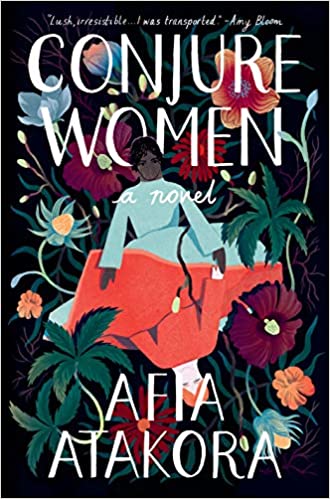 Conjure Women by Afia Atakora
Conjure Women by Afia Atakora Format: ebook
Source: borrowed from library
Formats available: hardcover, paperback, ebook, audiobook
Genres: historical fiction, magical realism
Pages: 400
Published by Random House on April 7, 2020
Purchasing Info: Author's Website, Publisher's Website, Amazon, Barnes & Noble, Kobo, Bookshop.org
Goodreads
A mother and daughter with a shared talent for healing—and for the conjuring of curses—are at the heart of this dazzling first novel
Conjure Women is a sweeping story that brings the world of the South before and after the Civil War vividly to life. Spanning eras and generations, it tells of the lives of three unforgettable women: Miss May Belle, a wise healing woman; her precocious and observant daughter Rue, who is reluctant to follow in her mother's footsteps as a midwife; and their master's daughter Varina. The secrets and bonds among these women and their community come to a head at the beginning of a war and at the birth of an accursed child, who sets the townspeople alight with fear and a spreading superstition that threatens their newly won, tenuous freedom.
Magnificently written, brilliantly researched, richly imagined, Conjure Women moves back and forth in time to tell the haunting story of Rue, Varina, and May Belle, their passions and friendships, and the lengths they will go to save themselves and those they love.
My Review:
The story of Conjure Women is the story of Miss Rue, born in slavery to the healing woman – or conjure woman – Miss May Belle and her man, a slave on the next plantation over.
Through the entire story Rue is one who stands tall – even when she is bowed down by trauma, grief or fear. But there is plenty of that fear and it shadows the whole story. Everything Rue has, everything she does, is conditional – and she knows it.
She can be sold at any time – and very nearly is. She can be beaten at the owner’s whim. Her dad is killed at the owner’s whim for a crime he did not commit, because the white girl who is both Rue’s friend and her enemy carelessly mentions his name when her father is looking for someone to blame for her out-of-wedlock pregnancy.
Even after the war, when she and her people are not merely free but temporarily ignored by the whites that surround their tiny, self-sufficient village, she knows that their freedom and prosperity is contingent on whites not stumbling over them. A contingency with a life measured in months.
And yet, in spite of everything that hangs over Rue’s life, this is a story of living. Of living through adversity, heartbreak and even despair. But of making a life that is more than mere survival.
It just takes a LOT of hard work. And a bit of conjuring. Perhaps just a bit too much conjuring. Because in Rue’s attempts to save what she can, she very nearly destroys what she loves most.
Escape Rating A: Conjure Women is Rue’s story, Rue and her mother Miss May Belle are the conjure women of the title. But, it begins with the boy, Bean, and ends with him, too. And isn’t that generally the way of things?
The story slips a bit back and forth in time as we follow Rue from her childhood in slaverytime to her adolescence in wartime and eventually her heartbreaking experiences in freedomtime. But we don’t experience her life in order. Rather, the times are linked by events and memories, and lead forward and backward and in the middle again as Rue’s thoughts travel from childhood to tragedy to hope to heartbreak to childhood until the ending – which wraps its way obliquely around to the beginning – and to Bean.
Sometimes those transitions are a bit jarring, and it can take the reader a bit to figure out how the story got to the place it suddenly is. But in the end it all does flow together, as coherent and as disjointed as memory.
In the end, Conjure Women is a compelling, complicated and frequently uncomfortable book. Rue is a character that readers are compelled to follow, as she is a mass of contradictions and insecurities doing her best to survive and even thrive in a world that has declared that she is less than nothing.
It’s Rue’s responsibility and duty as the healer to take care of her people and keep them healthy and safe, just as her mother did before her. No matter how often she feels inadequate to the task. No matter that they love her when she heals their ills but hate and fear her when she fails. Nor does it matter, as it did with her mother before her, that in slaverytime her task of keeping them healthy served the purpose of a master who wanted to get the maximum amount of work out of them for the minimum of expenditure.
No matter how many lies she has to tell. To her mother, to her people – and to herself. Feeling with her as we see the price she has to pay – and keep paying – is what makes her a character that carries the reader through this marvelous book. As she carried so many others.
Reviewer’s Note: Fiction is the lie that tells the truth. This work of fiction, created as a beautifully written combination of first-person accounts and historical documentation, tells a truth that we as Americans don’t want to see. That slavery was “a curse to the whites as well as to the blacks,” as Harriet Jacobs said in her autobiography Incidents in the Life of a Slave Girl. And that the hatred on the faces of the mob that stormed the U.S. Capitol on January 6, because they believe in everything that the last four years have stood for, are the spiritual descendants of the hatred on the faces hidden under the post-Civil War masks of the KKK who haunt the later chapters of this story. As much as we don’t want to admit it, the haters are every bit as much a part of this country, every bit as much a representation of who we really are, as those who are doing their damnedest to make the arc of our history bend towards the justice for all that is espoused in the Pledge of Allegiance.
I didn’t factor in just how difficult it would be to sit down and compose this review just after the inauguration ceremony finished. I also can’t help but think it’s important and significant that Amanda Gorman, the National Youth Poet Laureate who read her poem, “The Hill We Climb” at President Biden’s inauguration could be Rue’s (however many greats) granddaughter. And that Rue would never have imagined this day to be possible from the perspective of her own life, even by the time she died at the book’s end.
This book was marvelous from beginning to end – and so was that poem.

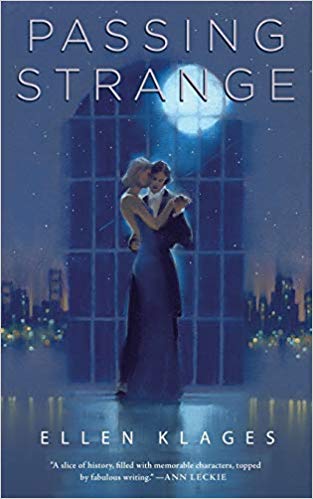 Passing Strange by
Passing Strange by 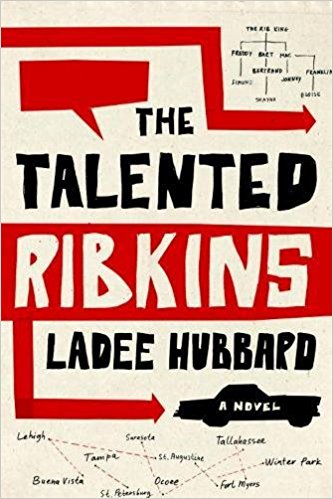 The Talented Ribkins by
The Talented Ribkins by 
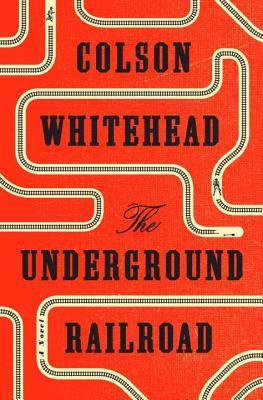 The Underground Railroad by
The Underground Railroad by 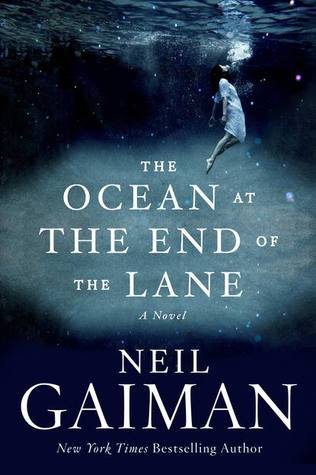 The Ocean at the End of the Lane by
The Ocean at the End of the Lane by 